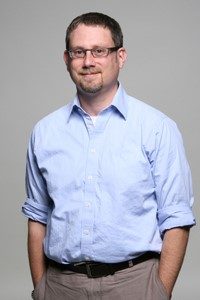Between the Steppe and the Sea: Scythians, Taurians, and Greeks in Crimea
Dr. Adam Rabinowitz, Indiana University
Sabin Hall Room G90, 3413 N. Downer Ave., UW-Milwaukee Campus
March 4, 2018, 3:00pm
Description: For more than three thousand years, the Crimean peninsula has been a meeting point for different worlds: the nomadic world of the great Central Asian steppe, the trade routes leading over land from the Middle East and Anatolia, and the interconnected maritime environment of the Mediterranean. These diverse currents were particularly entangled during the Iron Age, when the local population – known to the Greeks as the bloodthirsty Taurians – met, on the steppe side, Scythian horsemen, and on the sea side, Greek sailors establishing cities and trading posts along the coast. And these Greeks and Scythians met each other, too, eventually forming hybrid societies like the Bosporan Kingdom in eastern Crimea.
This talk will discuss the demographic and cultural transformations that took place in Crimea between the 7 th and the 4 th centuries BC, transformations that saw some of the most spectacular works of Greek metalsmiths deposited in the kurgan burials of Scythian princes. I will focus on the effects of culture contact on these diverse societies, with a particular focus on the western side of the peninsula, where, as part of UT’s Institute of Classical Archaeology, I carried out fieldwork and heritage management at the Greek city of Chersonesos between 2002 and 2011. I will also explore some of the more recent cultural interactions in Crimea, which finds itself once again contested between cultural forces both opposed to and deeply entangled with each other.

Adam Rabinowitz is Associate Professor in the Department of Classics at the University of Texas, and also Assistant Director of the Institute of Classical Archaeology there. His research interests are Greek colonization, cultural interaction, ancient food and drink, archaeology of daily life, and digital approaches to archaeology. He is a field archaeologist with twenty-five years of archaeological field experience at Greek, Roman, and Byzantine sites in Italy, England, Israel, Tunisia, and Ukraine, and has published extensively. Professor Rabinowitz is also involved in several digital humanities projects related to the linking and visualization of information about the Classical past, including Pleiades, GeoDia, Hestia 2, and PeriodO.
Read the poster for more information.